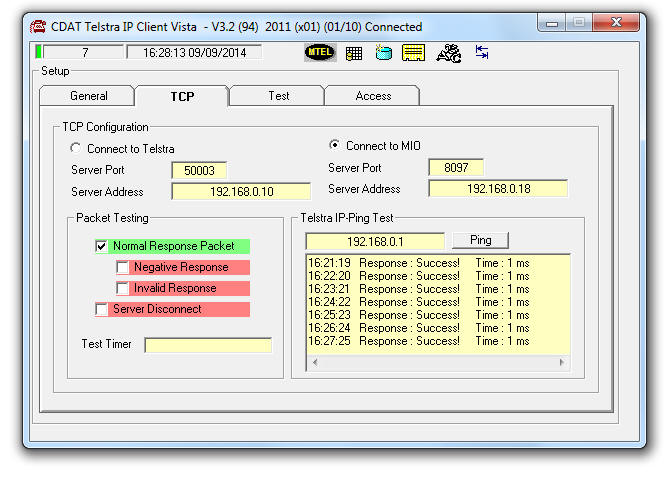The application has been upgraded to accept data
from a MIO Client as well as Telstra.
Some minor changes to the display of the log and
backup of the TCP log have also been included.
Logs continue to be backed up every 100 records. The
TCP log is now included in the backup.
The MIO is the replacement for the CDATServer application first introduced in
2010. The CDATServer application has been renamed to reduce confusion amongst a
variety of CDAT products and it reflects the role of the application. Whilst the
input is still the Telstra TCP IPND-MOLI packet it has no knowledge of the
contents and simply redistributes the Telstra packets to multiple outputs.
The MIO can be configured to take a single input and create multiple outputs
as in the regional setup. It can also be configured to take multiple inputs and
create multiple outputs as in the central setup. Both applications are identical
only the database defines the operation.
All outputs now appear in the MIO output grid. In addition
there is only one output format, that is a VisiCAD format.
The VisiCAD format is the MOLI-IPND with VisiCAD fields in front of the IPND
packet. The contents of the VisiCAD field are defined in the Input grid.
The Telstra IP client must connect to the MIO
permanently. This is the opposite to the TelstraIP operation where Telstra
creates a TCP connection to the Telstra IP client for each record sent.
The differences are selected in the setup tab as
shown below.

The Telstra IP client strips the MOLI-IPND
record from the VisiCAD packet and presents the record to the CDAT 2008 as
normal.

